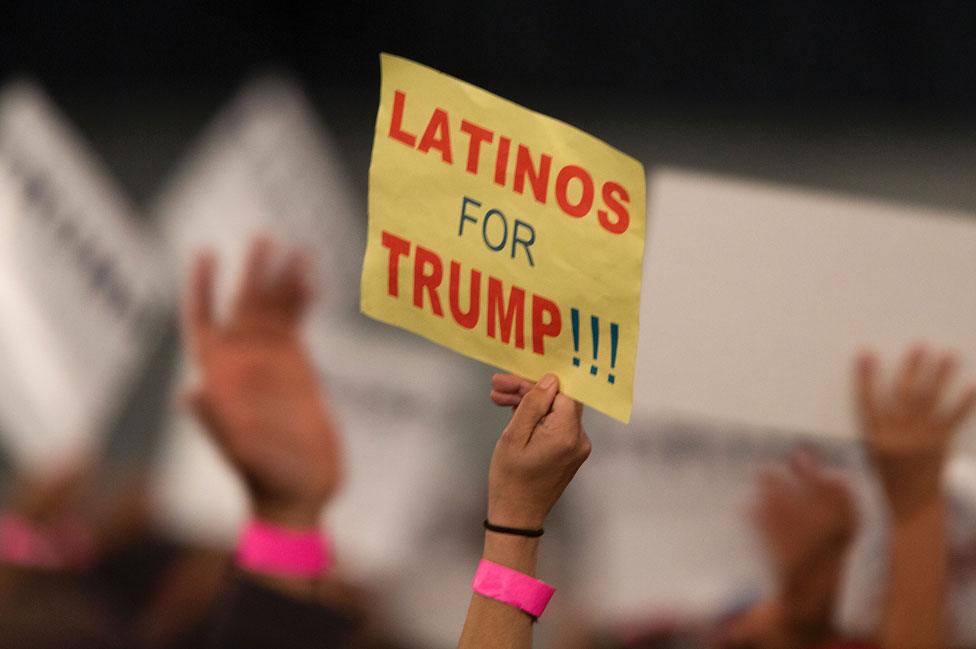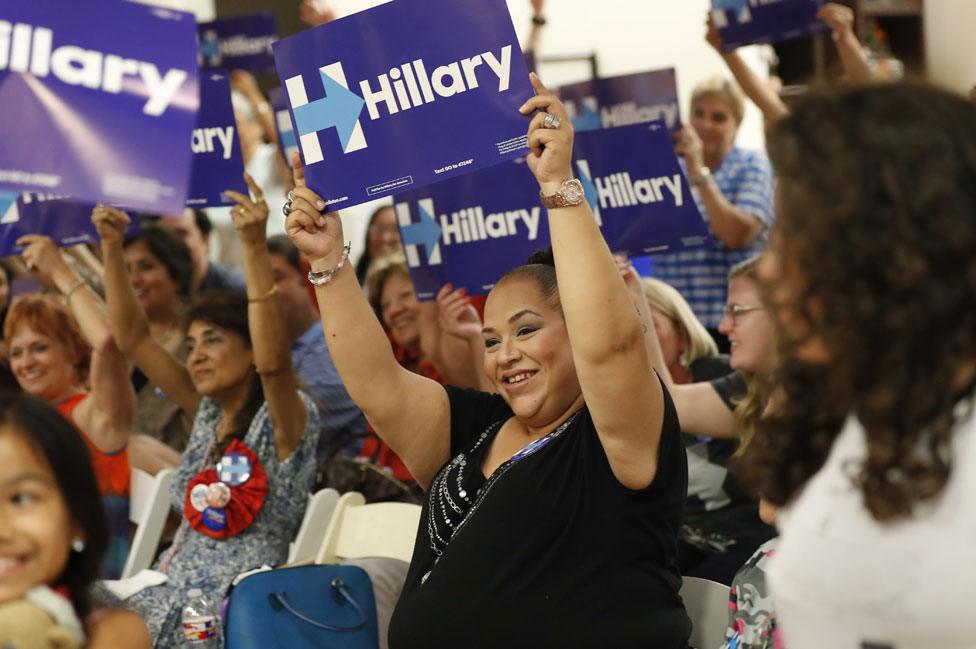Should Hispanics instead be called Latinos?
- Published

Republican Donald Trump has said some Hispanics prefer to be called Latinos. So what is the preferred term?
The New York businessman has often been accused of being culturally insensitive towards his country's 57 million Hispanics, the largest minority group in the United States.
It doesn't help that his first campaign speech featured remarks referring to Mexican immigrants as "rapists".
Now he is in a rather more subtle controversy after suggesting that Hispanics in Las Vegas prefer to be called Latinos, a claim not everyone agrees with.
In the political minefield that is US identity politics, this is a not an irrelevant detail.
Instead, it reveals tensions about how this community sees itself and how they are perceived by the rest of the country.
The term "Hispanic" reached widespread use in the US in the 1970s when a government agency, the Census Bureau, used it to group together Mexican-Americans, Puerto Ricans, and other communities tracing their ancestry to Spanish-speaking countries.
"It was a bureaucratic term", professor Louis DeSipio, a Latino politics expert at the University of California-Irvine, tells the BBC.
But some argue "Hispanic" is not the best word to describe the minority composing nearly 17% of the US population of Latin American origin. For example, it would not be adequate for Brazilian-Americans, whose cultural heritage is more closely aligned with Portugal.
All you need to know about the US election
Donald Trump's Hispanic voter 'doomsday'
An alternative term, Latino, "emerged more out of popular conversation", says Professor DeSipio.
But he insists this was a debate back in the 1970s and 1980s, and now thinks both terms are "synonymous".
To make things more confusing, studies suggest most Latinos/Hispanics might rather not use either term at all.
A 2012 study by the Pew Hispanic Center, external claims that a nationwide survey of Hispanic adults finds that these terms still haven't been fully embraced by Hispanics themselves.
A majority (51%) say they most often identify themselves by their family's country of origin - just 24% say they prefer a "pan-ethnic label" such as Hispanic or Latino.

Hispanics have been backing Clinton ahead of Trump
Someone in Miami's Little Havana might think of themselves first and foremost as a Cuban-American, while in New York, a woman who immigrated from Santo Domingo might rather define herself as Dominican-American, before identifying as Latino or Hispanic.
Some have also also pointed to regional differences in the use of these two concepts.
Professor DeSipio says that in California, where Mexican Americans are the prevailing group among this minority, they use the expression "Latino" more often than in East Coast cities such as New York, which has more descendants of immigrants from Latin American countries in the Caribbean and South America.
Las Vegas, the city Trump referred to in his speech, is heavily Mexican-American.
Political pundits often talk about a Hispanic voting bloc ready to deliver great electoral benefits to any politician who conquers it.
However, the semantic discussions on how to call them reveal the heterogenous nature of a community which the US government once tried to identify through the one-size-fits-all category of Hispanics.
But which is in fact extremely diverse in terms of race, culture, national origin and overall identity.